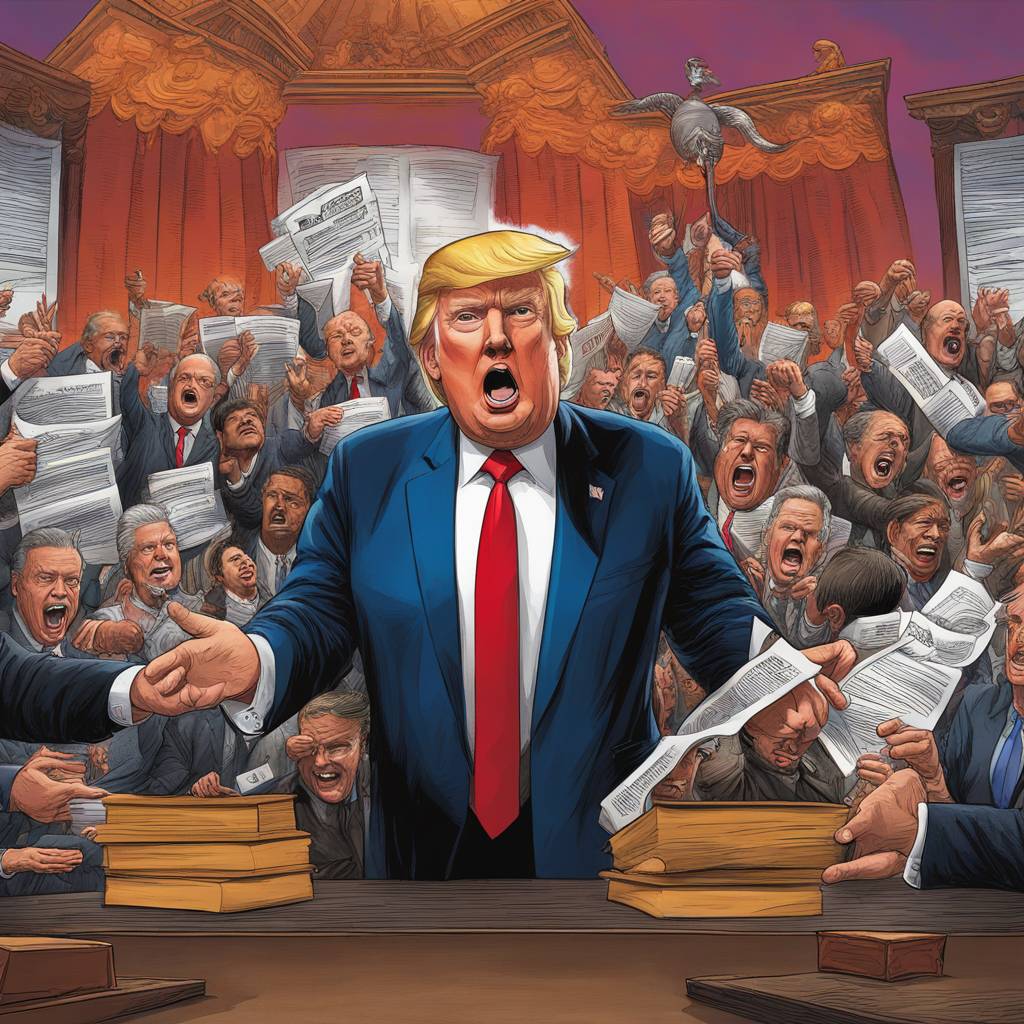A new legal battle has emerged over the gag order issued to former President Donald Trump in his New York hush-money criminal case. The order issued by New York State Supreme Court Justice Juan Merchan prohibits Trump from making statements about prosecutors, district attorney staff members, and potential witnesses and jurors in the case. However, it does not specifically ban Trump from attacking Merchan, Manhattan District Attorney Alvin Bragg, or their families. The gag order was issued after Trump attacked Merchan’s daughter on social media, prompting Bragg’s office to send a letter asking for clarification on who the order protects and to direct Trump to cease attacks on family members.
The office of Manhattan District Attorney Alvin Bragg believes that the gag order should protect family members of the Court, the District Attorney, and all individuals mentioned in the order. They argue that Trump’s threatening remarks about family members of trial participants have caused harm and fear, and that the court should make it clear that the order extends to all individuals mentioned in it. They also warn Trump that his conduct is contumacious, or willfully disobedient, and that he should face sanctions if he continues to disregard the order. Trump’s lawyer responded by opposing the request, arguing that the court cannot direct Trump to refrain from attacking Bragg, Merchan, or their family members because the gag order does not include such restrictions.
Former President Trump is facing multiple criminal indictments in New York, including charges related to falsifying business records to conceal hush-money payments made to adult film actress Stormy Daniels during his 2016 presidential campaign. Trump has pleaded not guilty to all charges, claiming that the legal woes he is facing are part of a political “witch hunt.” The New York trial is scheduled to begin on April 15, and Trump’s legal team is engaged in a legal battle over the scope of the gag order issued in the case.
The ongoing legal fight highlights the tension between Trump’s right to free speech and the court’s authority to maintain order and protect the integrity of the trial process. The issue of whether the gag order should extend to Trump’s attacks on family members of trial participants is a central point of contention between Bragg’s office and Trump’s legal team. The court will need to clarify the scope of the order and determine if sanctions are warranted if Trump continues to defy its restrictions.
This legal battle underscores the complex legal and ethical issues surrounding high-profile criminal cases involving public figures. The involvement of a former President adds another layer of complexity to an already contentious legal situation. The outcome of the legal fight over the gag order will have implications for how public figures are allowed to engage in free speech while facing criminal charges, as well as the court’s ability to maintain order and protect individuals involved in the trial process. The trial is set to proceed, but the legal wrangling over the gag order signals a contentious path forward in this high-profile case.








